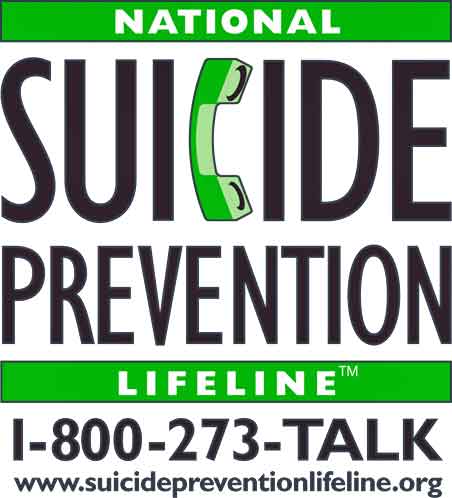
By Vincent J. McNally, MPS
As a retired FBI Agent, hostage negotiator and Employee Assistance Program Administrator I have seen first-hand the act, prevention and notification, and aftermath of suicide to loved ones and friends.
Devastating is one descriptive word that comes to me in describing the act and aftermath of suicide.
Over the last couple of days, we have been reminded of the impact of suicide of celebrities and listened to mental health describing the precursors of suicide, as well as being provided a national telephone number to contact if you are having issues which might lead to suicide (1-800-273-8255).
Calls are up 25%.
(When you ask how someone is doing and get the response “I’m good,” do you ever give it a second thought? “I’m Good” features actual Veterans and Service members talking about the conflicting feelings that sometimes underlie offhand responses like “I’m good.” It also highlights the important role that families, friends, co-workers, and other acquaintances can play in helping to prevent suicide. The video emphasizes the importance of being there for the people in our lives who, though they may not always show it, aren’t doing so well. Courtesy of the Veterans Health Administration and YouTube. Posted onMar 2, 2016.)
Even today someone told me that if I saw the signals which a person is exhibiting which might be suicidal I would be afraid to confront the person because it is embarrassing to the individual.
Inaction by those close to a suicidal person is not acceptable.
Everyone needs to understand that asking a person if he/she is suicidal will not cause the person to commit suicide…. basic teaching point in hostage negotiations.
I would sleep better at night knowing I did my best in determining if my friend was suicidal.
There is a catch, however, since there are about 10% who give no clue about their suicidal tendencies.
Also, wording is important in that you might not want to use “ARE YOU THINKING OF THROWING IN THE TOWEL?” when the person is cleaning the house.
Excuse the police humor but the point is to be as direct as possible: Are you suicidal or are you contemplating ending your life are the proper questions to pose to the individual.
We must all step-up, pay attention to those close to us and be there for them in their time of need.
This means being proactive not reactive and getting the person the help they need.
The excuse of not wanting to interfere in the affairs of others is not valid if the person is suicidal as the individual is not thinking clearly and you must act for them.
Do not leave the person alone and contact someone to assist you whether it be the hotline, police or friends… Do Something!
(Suicide rates increased in nearly every state from 1999 through 2016. Courtesy of the Centers for Disease Control and Prevention (CDC) and YouTube. Posted on June Jun 7, 2018.)
If you, or someone you know, is in crisis, support is available 24/7.
Reach out. One call can make a difference.

The National Suicide Prevention Lifeline is available to anyone by calling 1-800-273-8255.
About the Author
Vince McNally has provided over 100 workshops, seminars, and keynotes throughout the world. He is an author, lecturer, and consultant.
A Navy Investigator in Vietnam, and a volunteer in training the Iraqi Police in Baghdad in Hostage Negotiations he continues to research the area of Post Traumatic Stress in returning veterans and contractors in Iraq.
After 31 years as an FBI Agent has conducted and led investigations in general criminal violations, espionage, terrorism, white-collar crime, organized crime, and drug violations.
He is also an instructor in Crisis (Hostage) Negotiations.
Vince retired after serving as Unit Chief of the Employee Assistance Unit (EAU) of the FBI in Washington D.C. after being the Program Manager for the FBI ‘s Critical Incident Stress Management teams at the FBI Academy in Quantico, Virginia.
In September 2001 Vince and others responded to New York City. He continues to assist first responders throughout the United States.
He also directed and provided FBI Employee Assistance to TWA Flight 800 and numerous responses throughout the U.S.

Vince serves on the Board of Scientific & Professional Advisors of the American Academy of Experts in Traumatic Stress (National Center for Crisis Management).
He is a Compassion Fatigue Specialist, Board Certified in Acute Traumatic Stress Management (ATSM), Board Certified in Emergency Crisis Response (B.C.E.C.R.) and is a Certified Member of the Green Cross Academy of Traumatology.
He is also a Certified Employee Assistance Professional (CEAP).
Vince’s expertise and reputation as a speaker has found him presenting to the military in Switzerland and most recently as a presenter on hostage negotiations for the cruise industry addressing piracy on the high seas as he is a Certified Ship Security Officer.
His focused presentations on stress and have been shared with thousands of emergency service personnel.
He has completed a year as the Security Manager at Honolulu Airport overseeing law enforcement.
Specialties: Security Director, Trauma Specialists, Police Instructor, hostage negotiator, Employee Assistance Professional, Ship Security Officer, Investigations, Law Enforcement, government liaison
Vince can be contacted at Vincent.j.mcnally@gmail.com.
Vincent McNally was recognized in the 2017 ‘ASTORS’ Homeland Security Awards Program in gratitude for his work on PTSD, Compassion Fatigue and Acute Traumatic Stress Management for Public Safety Professionals, First Responders and U.S. Service Members.
-
Vincent J. McNally, Sea & Air Security
- Consultant and trainer on Critical Incidents and Trauma for Police and Emergency Responders
- Excellence in Homeland Security
Please Take a Moment to Learn More…
Be a Survivor: Trauma Resiliency to Tragedies for First Responders
And More…
Diary of a Suicidal Cop: ‘Inside it’s a War’ (Important: Please Read & Share)
















